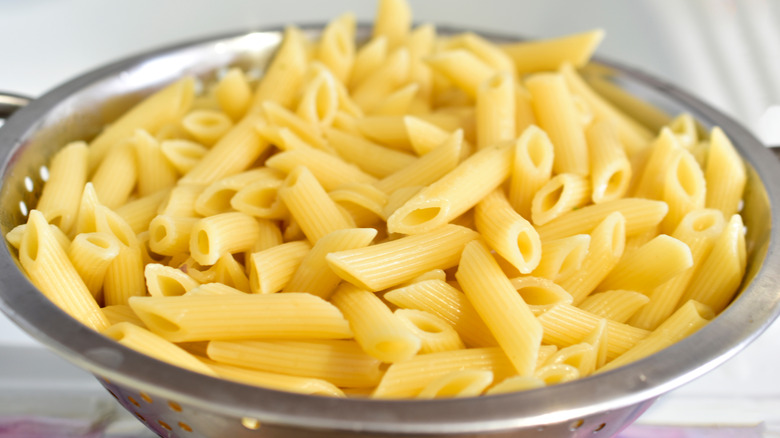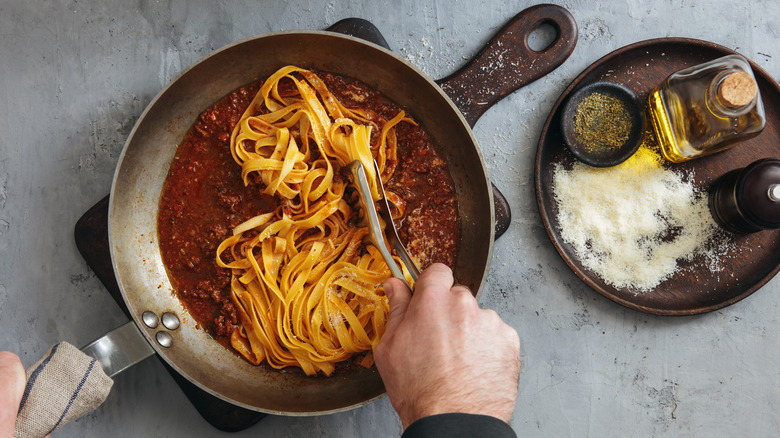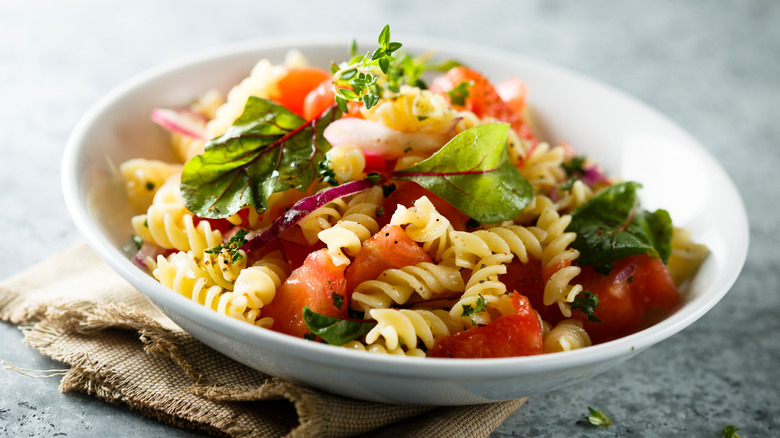Rinsing Pasta Is Like Washing Liquid Gold Down The Drain
There are so many different ways to cook pasta, it can be hard to know which is best. From salting the water to starting the noodles in cold water, expert chefs have lots of different tried-and-true methods. While you could just follow the manufacturer directions on the back of a package of dried pasta, you might be missing out on ways to take your pasta game to the next level.
One thing you definitely shouldn't do? Rinse your pasta. When you toss noodles into a colander and run water all over them after cooking, you might think you're helping them become less sticky. But you also rinse away important starch from the surfaces. This can certainly help prevent the noodles from clumping to each other, but it also means that any sauce you add won't cling to the noodles as well, either. Whether you're tossing your pasta in a pesto, red sauce, cream, or even just butter, rinsing it first will make it harder for that liquid to join with the noodles, resulting in a less flavorful dish.
The starch in pasta is important for your final dish
One recommendation you've probably heard is to save some of that starchy pasta water after your noodles are cooked. Even though the package instructions will usually just tell you to strain the pasta after cooking, that might not be the wisest move. The starch in pasta almost acts like glue — in fact, the word pasta literally means paste in Italian. So the water that's left after cooking pasta becomes a magical concoction that can actually improve your final dish. Set aside a cup or two before you strain your noodles, then add some back in with your sauce as you toss the pasta together. All the starch in the water will help the sauce stick to the noodles rather than just sit on top of it.
If you didn't remember to save any of the leftover cooking liquid, don't fret. Draining your pasta means that all that starchy water is gone, but the noodles themselves will still have starch on their surfaces. The starch that's still present on the pasta will also help any sauce adhere to the noodles, which is why rinsing is a no-go.
The one exception to the pasta rinsing rule
While rinsing your noodles is pretty much always a bad idea when you're making a hot pasta dish, there are some instances in which this rule should be ignored. If you're going to be eating your noodles cold or at room temperature, then you're probably going to want to rinse them after cooking. Running pasta under cold water after boiling will help to stop the cooking process, preventing your pasta salad from becoming mushy. And since you'll be eating it cold anyway, this won't matter. And as we mentioned, rinsing pasta also washes away the starch on the surface, which will keep the noodles from becoming one big clump when they're chilled or left at room temp.
The same goes for Asian noodles that you might use in a stir-fry dish, such as udon or soba noodles. These types of noodles should always be rinsed under cold water after cooking, even if you're going to serve them hot. This helps them to not feel slimy and keeps them a bit firmer.



